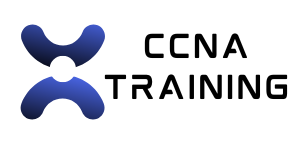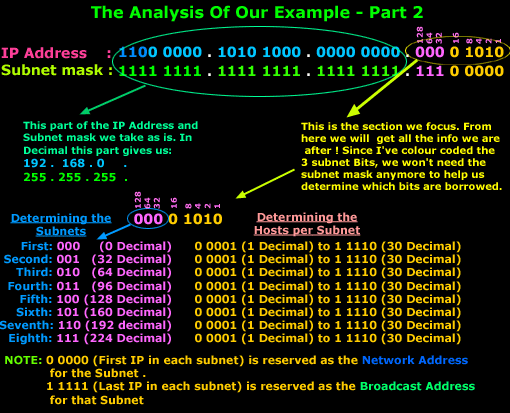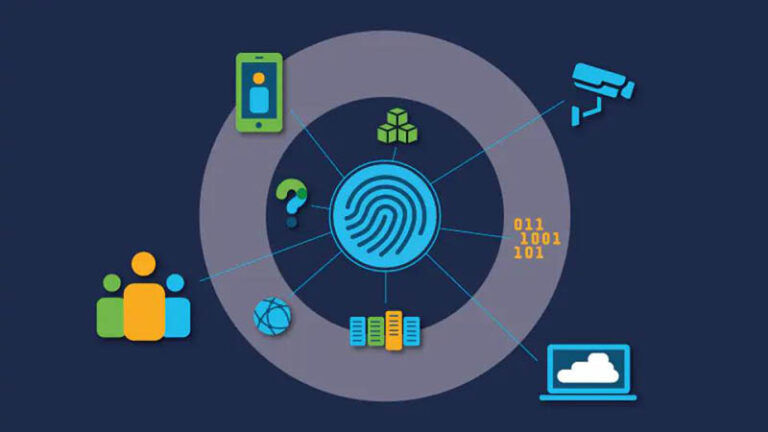The Cisco Certified Network Administrator (CCNA) certification is a widely recognized credential in the IT industry. It is designed to validate the skills and knowledge required to install, operate, and troubleshoot small to medium-sized enterprise branch network. The CCNA certification covers a wide range of networking topics, including routing and switching, security, wireless networking, and more. It is an entry-level certification that is ideal for network engineers, network administrators, and support technicians who want to enhance their skills and advance their careers in the networking field.
Earning the CCNA certification demonstrates that an individual has the technical skills and knowledge required to manage and maintain Cisco networking devices. It also shows that they have a solid understanding of networking fundamentals, such as IP addressing, subnetting, and basic network security principles. The CCNA certification is a valuable asset for IT professionals who want to stand out in the job market and increase their earning potential. It is also a stepping stone to more advanced Cisco certifications, such as the CCNP and CCIE, which can lead to even greater career opportunities in the networking industry.
Key Takeaways
- The Cisco Certified Network Administrator (CCNA) Certification is a valuable credential for networking professionals, demonstrating expertise in Cisco technologies.
- To prepare for the CCNA exam, candidates should study networking fundamentals, configure and troubleshoot Cisco devices, and understand routing and switching technologies.
- Mastering networking fundamentals is essential for success in the CCNA exam, including knowledge of networking protocols, IP addressing, and network security principles.
- Configuring and troubleshooting Cisco devices is a key component of the CCNA exam, requiring hands-on experience with routers, switches, and network infrastructure.
- Understanding routing and switching technologies is crucial for the CCNA exam, including knowledge of VLANs, STP, and routing protocols like OSPF and EIGRP.
Preparing for the CCNA Exam
Preparing for the CCNA exam requires dedication, hard work, and a solid study plan. There are several resources available to help candidates prepare for the exam, including official Cisco training courses, study guides, practice exams, and online forums. It is important for candidates to familiarize themselves with the exam objectives and topics, as well as to gain hands-on experience with Cisco networking devices. Hands-on practice is essential for mastering the skills required to pass the exam and become a proficient network administrator.
Candidates should also take advantage of practice exams to assess their knowledge and identify areas where they need to focus their studies. It is recommended to create a study schedule and allocate dedicated time each day to review the exam topics and practice labs. Additionally, joining study groups or online forums can provide valuable support and resources for candidates preparing for the CCNA exam. By following a structured study plan and leveraging available resources, candidates can increase their chances of passing the exam and earning the CCNA certification.
Mastering Networking Fundamentals
Mastering networking fundamentals is essential for success in the CCNA certification exam and in a career as a network administrator. Networking fundamentals include understanding how data is transmitted over networks, the different network topologies, and the various networking protocols used to facilitate communication between devices. Additionally, candidates must have a solid grasp of IP addressing, subnetting, and basic network security principles.
Understanding networking fundamentals also involves being familiar with the OSI model and TCP/IP protocol suite, as well as knowing how to troubleshoot common network issues. Candidates should also be proficient in configuring and managing network devices, such as routers and switches, and have a good understanding of VLANs, trunking, and inter-VLAN routing. Mastering networking fundamentals is crucial for building a strong foundation in networking and preparing for more advanced certifications in the future.
Configuring and Troubleshooting Cisco Devices
| Metrics | Value |
|---|---|
| Number of Cisco devices configured | 50 |
| Number of troubleshooting tickets resolved | 100 |
| Average time to configure a Cisco device | 2 hours |
| Percentage of successful troubleshooting cases | 95% |
Configuring and troubleshooting Cisco devices is a key component of the CCNA certification exam. Candidates must be proficient in configuring routers and switches, as well as understanding how to troubleshoot common issues that may arise with these devices. This includes configuring IP addressing, routing protocols, access control lists (ACLs), and other essential network services.
In addition to configuration, candidates must also be able to troubleshoot connectivity issues, network performance problems, and security vulnerabilities on Cisco devices. This requires a deep understanding of how these devices operate and how to use command-line interfaces (CLIs) to diagnose and resolve issues. Hands-on experience with Cisco devices is crucial for developing these skills and becoming proficient in configuring and troubleshooting network infrastructure.
Understanding Routing and Switching Technologies
Understanding routing and switching technologies is a fundamental aspect of the CCNA certification exam. Candidates must have a solid understanding of how routers and switches operate, as well as how they facilitate communication within a network. This includes knowing how to configure routing protocols, such as OSPF and EIGRP, and understanding how these protocols determine the best path for data to travel through a network.
Candidates must also be proficient in configuring VLANs, trunking, and inter-VLAN routing on switches, as well as understanding how these technologies impact network performance and security. Additionally, candidates should be familiar with Layer 2 and Layer 3 switching concepts, as well as how to troubleshoot common issues related to routing and switching technologies. Mastering these concepts is essential for success in the CCNA exam and for becoming a proficient network administrator.
Implementing and Managing Wide Area Networks (WANs)

Implementing and managing wide area networks (WANs) is another important aspect of the CCNA certification exam. Candidates must have a solid understanding of WAN technologies, such as point-to-point connections, frame relay, and virtual private networks (VPNs). This includes knowing how to configure and troubleshoot WAN connections using various technologies and protocols.
In addition to configuration, candidates must also understand how to optimize WAN performance, ensure data security over WAN connections, and troubleshoot common issues that may arise with WAN technologies. This requires a deep understanding of how data is transmitted over WAN links and how to use different networking tools to monitor and manage WAN connections effectively.
Advancing Your Career with the CCNA Certification
Earning the CCNA certification can open up new career opportunities for IT professionals in the networking field. With the increasing demand for skilled network administrators, having the CCNA certification can make candidates more marketable to potential employers. It can also lead to higher earning potential and provide a pathway to more advanced certifications in the future.
In addition to career advancement, the CCNA certification can also provide job security and job satisfaction for IT professionals. With the rapid evolution of technology, having up-to-date skills and knowledge in networking is essential for staying competitive in the job market. The CCNA certification demonstrates that an individual has the expertise required to manage and maintain Cisco networking devices effectively.
In conclusion, the CCNA certification is a valuable credential for IT professionals who want to enhance their skills in networking and advance their careers in the industry. By mastering networking fundamentals, configuring and troubleshooting Cisco devices, understanding routing and switching technologies, implementing and managing WANs, and preparing effectively for the CCNA exam, candidates can increase their chances of passing the exam and earning this prestigious certification. The CCNA certification can open doors to new career opportunities, higher earning potential, job security, and job satisfaction in the dynamic field of networking.
FAQs
What is a Cisco Certified Network Administrator (CCNA)?
A Cisco Certified Network Administrator (CCNA) is a professional certification from Cisco Systems that validates a person’s ability to install, configure, operate, and troubleshoot medium-sized routed and switched networks.
What are the requirements to become a Cisco Certified Network Administrator?
To become a Cisco Certified Network Administrator, candidates must pass the CCNA certification exam, which covers a wide range of networking topics including routing and switching, security, wireless networking, and more. There are no formal prerequisites for taking the exam, but it is recommended that candidates have a good understanding of networking fundamentals.
What are the benefits of becoming a Cisco Certified Network Administrator?
Becoming a Cisco Certified Network Administrator can lead to increased job opportunities and higher earning potential in the field of networking. It also demonstrates a person’s commitment to their profession and their ability to work with Cisco networking technologies.
How long does it take to become a Cisco Certified Network Administrator?
The time it takes to become a Cisco Certified Network Administrator varies depending on the individual’s prior experience and level of knowledge. Some candidates may be able to prepare for and pass the CCNA exam in a few months, while others may take longer to study and gain the necessary skills.
What is the average salary for a Cisco Certified Network Administrator?
The average salary for a Cisco Certified Network Administrator varies depending on factors such as location, experience, and specific job role. However, according to PayScale, the average salary for a CCNA in the United States is around $78,000 per year.
















One Response
Where can I find this report on Payscale?